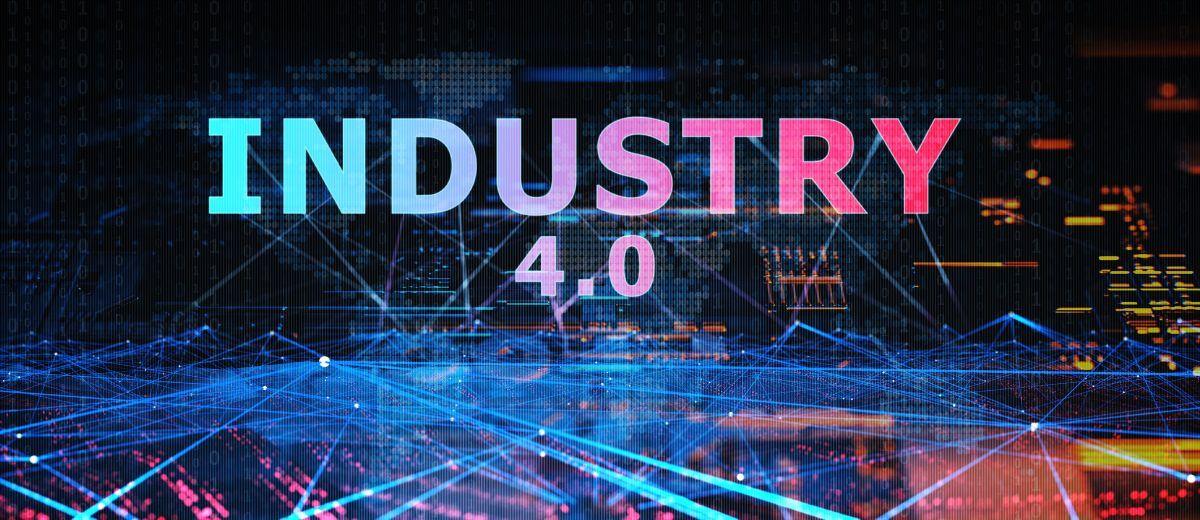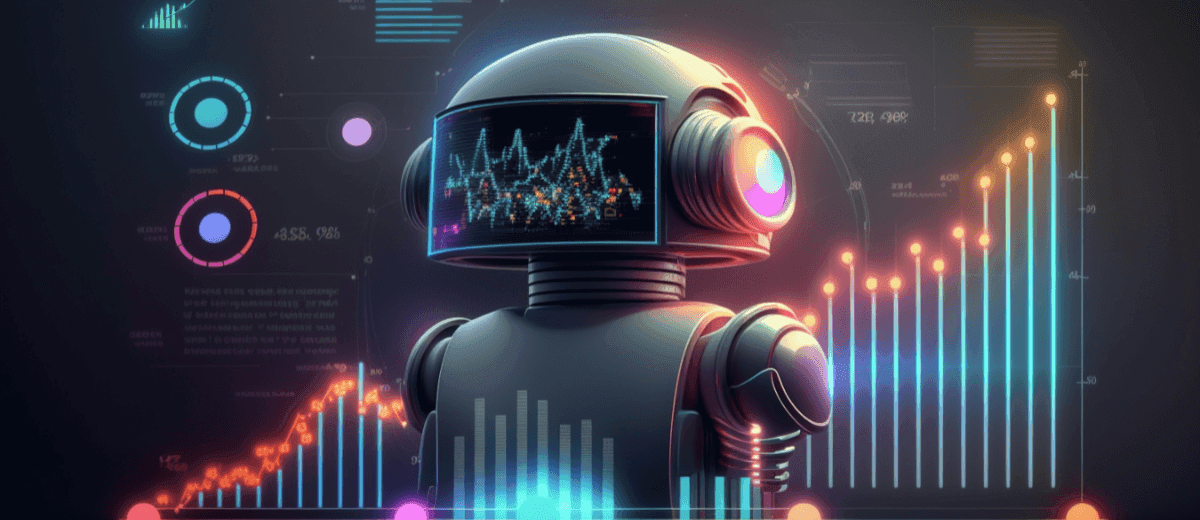- 27th Apr, 2024
- Riya S.
Transforming Manufacturing With Industry 4.0 In The UAE
7th Oct, 2024 | Hardik D.
- Artificial Intelligence

Blog Summary: Industry 4.0 is revolutionizing manufacturing in the UAE, driven by advanced technologies like AI, IoT, and robotics. Government initiatives such as Operation 300bn aim to boost the country's industrial sector, and companies like Bombay Softwares are empowering businesses with smart factory solutions.
Introduction
Industry 4.0 manufacturing is one of the major pillars of the 9 Industry 4.0 pillars. It is experiencing a significant transformation, and nowhere is this shift more evident than in the UAE.
As part of its commitment to staying ahead of global trends, the UAE's Ministry of Industry and Advanced Technology (MoIAT) launched Operation 300bn, a strategy aimed at increasing the country’s industrial GDP to AED300bn by 2031.
Central to this strategy is Industry 4.0, a concept that integrates Artificial Intelligence (AI), the Internet of Things (IoT), and robotics to revolutionize traditional manufacturing.
In this transformative era, technology companies like Bombay Softwares are playing a vital role in enabling manufacturers to embrace this industry 4.0 manufacturing.
As a key participant in GITEX Technology Week 2024, Bombay Softwares is focused on helping businesses leverage the power of Industry 4.0 technologies to drive efficiency, innovation, and growth.
With advanced software solutions tailored to meet the needs of modern manufacturers, Bombay Softwares is empowering businesses to stay competitive in the global market.
But what exactly is Industry 4.0, and how is it poised to change the face of manufacturing in the UAE?
What is Industry 4.0?
Industry 4.0 refers to the Fourth Industrial Revolution, which marks a new chapter in the evolution of industrial processes.
Unlike the previous industrial revolutions, which introduced mechanical production, electricity, and automation, Industry 4.0 manufacturing integrates cyber-physical systems, digitalization, and smart technology into every facet of the manufacturing process.
At its core, Industry 4.0 is about the creation of "smart factories" where machines, devices, and systems are interconnected through IoT and can communicate in real-time.
This creates a seamless flow of information that allows for predictive maintenance, streamlined workflows, and increased automation.
In a smart factory, machinery can self-diagnose issues, schedule maintenance, and adjust production rates according to real-time data. This ensures the highest levels of efficiency.
For the UAE, Industry 4.0 represents a fundamental shift toward a diversified, knowledge-based economy.
By integrating these advanced technologies, the UAE is creating a manufacturing ecosystem that is not only more efficient but also more resilient and sustainable in the long run.
Industry 4.0 manufacturing is seen as a key driver in reducing the country's reliance on oil and positioning it as a global leader in advanced manufacturing.
Let’s take a closer look at the growth in the industrial sector and the emergence of smart factories.
Growth in the Industrial Sector: The Rise of Smart Factories
According to a report from Statista, the value added in the manufacturing market is projected to reach USD 40.4 billion in 2024. This reflects a compound annual growth rate (CAGR) of 2.45% from 2024 to 2029.
This growth signifies the ongoing transformation and potential for development within the UAE's manufacturing sector.
This growth is largely driven by national initiatives like Operation 300bn, which has set ambitious goals to transform the UAE into a global manufacturing powerhouse.
According to Dr. Al Jaber in a statement to the Emirates News Agency (WAM), “If we look at the sector’s key performance indicators, the industry’s contribution to the UAE’s economy has increased by 49 percent since MoIAT was established.
In 2020, before the ministry was created, the sector's contribution to GDP was AED 132 billion. Today it has reached a projected AED 197 billion.”
Central to this expansion is the development of smart factories, where Industry 4.0 technologies like IoT, AI, and automation are fully integrated. These smart factories are the backbone of the UAE’s industrial transformation, enabling businesses to optimize production processes, reduce costs, and increase efficiency.
According to the Official Portal of the UAE government, industrial Strategy has identified 75 projects aimed at transforming Dubai into a worldwide platform for knowledge-based, innovative, and environmentally sustainable enterprises. The approach is expected to produce an extra AED 160 billion by 2030.
These initiatives are laying the foundation for long-term economic growth and positioning the UAE as a leader in advanced manufacturing.
Key Industry 4.0 manufacturing Technologies Changing the Game
The rapid adoption of Industry 4.0 manufacturing technologies in the UAE is reshaping the manufacturing landscape.
These technologies are not only enhancing productivity but also creating new opportunities for innovation.
The following are key industry 4.0 example that are driving the transformation:
1. Artificial Intelligence (AI):
AI-powered systems are being used to optimize production lines, enabling machines to operate with minimal human intervention.
AI helps predict equipment failures, schedule maintenance, and even automate quality control processes. This reduces machine downtime and boosts productivity.
2. Internet of Things (IoT)
IoT enables real-time data collection from interconnected devices across the factory floor.
Sensors embedded in machinery can track performance metrics, energy usage, and production output, allowing manufacturers to make data-driven decisions that improve efficiency.
3. Robotics and Automation
Advanced robots can now perform intricate tasks with speed and precision, reducing human error.
Automation also leads to a more agile production process, where robots can quickly switch between tasks, enhancing flexibility and reducing lead times.
3. 3D Printing
Also known as additive manufacturing, 3D printing allows for the rapid prototyping of parts and products.
It supports customization and reduces material waste, making manufacturing more cost-effective and environmentally friendly.
4. Big Data and Analytics
With the rise of Big Data, manufacturers can now analyze vast amounts of information to uncover trends and insights. This helps businesses optimize production, reduce costs, and predict consumer demand more accurately.
5. Cybersecurity
As more manufacturing processes become digitized, protecting sensitive data from cyberattacks is critical. Industry 4.0 solutions require robust cybersecurity frameworks to safeguard connected systems and ensure operational continuity.
These technologies are transforming how manufacturers operate, from optimizing supply chains to improving product quality.
The UAE’s commitment to fostering a smart manufacturing environment is key to maintaining its competitive edge in the global market.
The UAE’s Bold Steps in Industry 4.0 Manufacturing
The UAE is at the forefront of the Industry 4.0 revolution, implementing innovative policies and strategies to enhance its manufacturing sector.
By focusing on advanced technologies and creating a conducive environment for growth, the UAE is positioning itself as a global leader in industrial innovation. Here are the key steps being taken:
1. Strategic Policies
Policies like Operation 300bn position the UAE as a global hub for advanced manufacturing, with ambitious targets for industrialization 4.0’s growth and technological innovation.
2. Role of MoIAT
The Ministry of Industry and Advanced Technology (MoIAT) is a key driver of this movement, focusing on integrating Industry 4.0 technology into the manufacturing sector.
3. Readiness Index Initiative
Initiatives such as the 4th Industrial Revolution Readiness Index assess the digital maturity of manufacturing plants in the UAE. This industry 4.0 revolution helps businesses evaluate technological capabilities and plan for digital transformation.
4. Financing for Growth
According to EDB, the Emirates Development Bank has announced AED 362 million in financing for the manufacturing sector, focusing on micro, small, and medium enterprises (MSMEs).
In 2024, over AED 5.4 billion has been provided, reflecting significant growth since the 2021 strategy launch.
5. Development of Industrial Zones
The development of industrial zones, such as Khalifa Industrial Zone Abu Dhabi (KIZAD) and Dubai Industrial City, provides manufacturers with advanced infrastructure and strategic access to global markets.
6. Public-Private Collaboration
The UAE is fostering collaboration between public and private sectors to create an ecosystem that supports innovation, job creation, and economic diversification.
7. Adoption of Advanced Technologies
The adoption of AI, IoT, robotics, and 3D printing in manufacturing enhances productivity and opens new avenues for high-skilled jobs, contributing to a resilient and diversified economy.
What are some of the challenges and benefits of Industry 4.0?
Industry 4.0 presents a transformative shift in manufacturing, driven by advanced technologies such as AI, IoT, and automation.
This evolution offers significant benefits of Industry 4.0 for growth, efficiency, and innovation, but also poses unique challenges that industries must navigate.
1. Benefits
- Increased Efficiency:
The integration of IoT, AI, and automation leads to more efficient production lines, reducing waste and optimizing resource use.
- Cost Reduction:
By using Big Data and AI to analyze and improve production processes, manufacturers can significantly cut costs related to materials, energy, and labor.
- Enhanced Product Quality:
With real-time monitoring and predictive maintenance, manufacturers can minimize defects and ensure consistently high product quality.
- Customization:
3D printing enables manufacturers to offer personalized products on a mass scale, meeting consumer demands for customization without increasing costs.
- Sustainability:
By optimizing resource use and reducing energy consumption, Industry 4.0 technologies help companies meet sustainability targets and reduce their carbon footprint. Now, Let's take a look at some industry 4.0 challenges.
2. Challenges
- Workforce Skill Gaps:
A significant challenge is the need for a workforce skilled in handling advanced digital systems. Manufacturers need to invest in training programs to bridge this gap.
- Cybersecurity Risks:
The adoption of connected systems introduces vulnerabilities to cyberattacks. Companies must invest in robust cybersecurity measures to protect their data and operations.
- High Initial Investment:
While the long-term benefits are clear, the initial costs of adopting Industry 4.0 technologies can be prohibitive for some businesses.
- System Integration:
Integrating Industry 4.0 technologies with existing legacy systems can be complex and costly, requiring careful planning and execution.
- Data Privacy Concerns:
As manufacturers collect more data, they face the challenge of ensuring that personal and sensitive information is handled responsibly and securely.
How Bombay Softwares is Empowering Manufacturers to Adopt Industry 4.0
Bombay Softwares is playing a crucial role in helping manufacturers transition to the Industry 4.0 paradigm.
By offering tailored software for Industry 4.0 that incorporate AI, IoT, and Big Data, Bombay Softwares enables businesses to automate their processes, reduce costs, and improve product quality.
For example, Our software solutions enable real-time data monitoring, predictive maintenance, and workflow automation, allowing manufacturers to operate more efficiently and with greater agility.
These tools are essential for creating smart factories where machines can communicate and coordinate autonomously.
Moreover, Bombay Softwares provides cybersecurity solutions that ensure manufacturers can securely digitize their operations without the risk of cyberattacks.
Our expertise extends to integrating Industry 4.0 technologies with existing systems, minimizing disruption while maximizing efficiency.
By partnering with Bombay Softwares, businesses in the UAE can harness the full potential of Industry 4.0, ensuring they remain competitive in an increasingly digitized world.
The Future of Industry 4.0: What’s Next?
The future of Industry 4.0 in the UAE looks bright, with several emerging trends set to further transform the manufacturing sector:
1. 5G Connectivity
The rollout of 5G networks will enable faster, more reliable communication between devices, unlocking new possibilities for IoT and smart factories.
2. Autonomous Vehicles
Automated transport systems could revolutionize logistics, allowing for faster and more efficient movement of goods.
3. AI-Driven Supply Chains
AI will continue to play a significant role in optimizing supply chains, making them more responsive and adaptive to real-time data.
4. Blockchain in Manufacturing
Blockchain technology could enhance transparency and traceability in supply chains, improving accountability and reducing fraud.
5. Sustainability and Green Manufacturing
As the world moves towards greener production methods, Industry 4.0 technologies will help manufacturers meet stringent sustainability targets by optimizing energy use and minimizing waste.
These trends, coupled with the UAE’s strategic location and world-class infrastructure, position the country to be a global leader in advanced manufacturing for years to come.
Connect with Bombay Softwares at GITEX 2024
At GITEX Technology Week 2024, Bombay Softwares invites you to explore our innovative solutions that are redefining the manufacturing landscape through Industry 4.0 technologies.
Join us at Booth No: H26 B35 to discover how our AI, IoT, and Big Data solutions can enhance operational efficiency, improve product quality, and reduce costs. Our team of experts will be on hand to demonstrate our cutting-edge applications and discuss how they can be tailored to meet your specific needs.
This event offers an excellent opportunity to connect with industry leaders and decision-makers.
Whether you are looking to enhance your manufacturing resource planning processes or explore new technologies, our solutions are designed to address the challenges of today’s competitive environment.
Conclusion
Industry 4.0 manufacturing has become a game changer in the UAE, opening up exciting new chances for growth and efficiency.
With the rise of smart factories, using technologies like AI, IoT, and robotics is essential for business transformation to stay competitive.
The government's initiatives, such as Operation 300bn, provide a clear path for manufacturers to improve their operations and move toward a more sustainable future.
At Bombay Softwares, we are dedicated to helping manufacturers make this transition.
Our easy-to-use software solutions give businesses the tools they need to work more efficiently and improve product quality.
As we showcase our innovative technologies at GITEX 2024, we invite you to see how Industry 4.0 can change your manufacturing processes for the better.
Are you ready to join us in shaping the future of manufacturing?
Don’t miss out! Book your slot to secure your spot
FAQs
1. How can small and medium-sized enterprises (SMEs) in the UAE benefit from Industry 4.0 technologies?
A: SMEs can leverage Industry 4.0 technologies to enhance operational efficiency, reduce costs, and improve product quality, enabling them to compete more effectively in the market. Tailored solutions can also help SMEs adopt these technologies at a manageable scale.
2. What specific Industry 4.0 technologies are most commonly adopted by manufacturers in the UAE?
A: Manufacturers in the UAE are increasingly adopting technologies such as AI, IoT, advanced robotics, and 3D printing. These technologies help optimize production processes and improve overall efficiency.
3. How does Bombay Softwares support manufacturers in their digital transformation journey?
A: Bombay Softwares supports manufacturers by providing tailored software solutions that integrate AI, IoT, and Big Data, enabling businesses to automate processes, enhance productivity, and improve product quality during their digital transformation.
4. What unique features differentiate Bombay Softwares' solutions from other providers?
A: Bombay Softwares offers customized solutions that cater specifically to the manufacturing sector's needs, focusing on real-time data monitoring, predictive maintenance, and seamless integration with existing systems, which helps manufacturers achieve operational efficiency.
5. What impact does Industry 4.0 have on the sustainability of manufacturing practices?
A: Industry 4.0 technologies enable manufacturers to optimize resource usage, reduce waste, and lower energy consumption, significantly enhancing sustainability in manufacturing practices.
More blogs in "Artificial Intelligence"
- 30th Apr, 2024
- Nisha D.
Data Centers in Saudi Arabia: Powering the AI Revolution
- 18th May, 2024
- Aarav P.
AI Consultancy Services: Key Market Insights and Strategies
Join our Newsletter
Get insights on the latest trends in technology and industry, delivered straight to your inbox.









